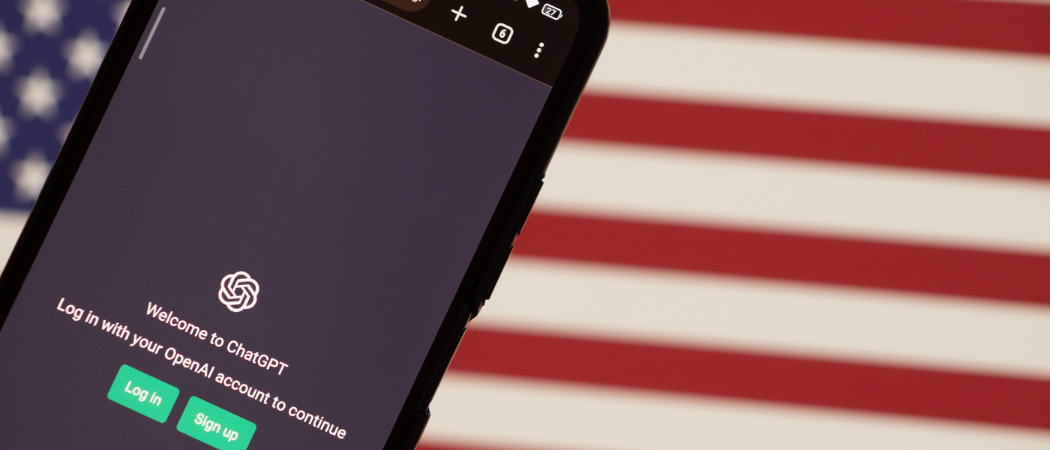New administration could boost artificial intelligence research funding, take a more hands-off approach to AI regulation, or both

Photo credits: aslysun / BigStock
As Donald Trump assembles his executive team, scientists and policymakers on both sides of the Atlantic are wondering what the impact his second mandate will have on EU-US collaboration in artificial intelligence (AI) and other technologies.
Uncertainty swirls and the answer to that question is not straightforward, an online meeting organised by Science|Business heard.
On AI, Trump is expected to let the US industry set its own rules, in contrast with a push led by the European Commission to regulate and limit the potential negative effects the technology may have on society and democratic institutions.
“The bets are good that there'll be no US AI act,” said Suresh Venkatasubramanian, professor at Brown University and a former assistant director in the White House Office of Science and Technology Policy. But Venkatasubramanian expects the new Trump administration to encourage “an aggressive push towards more innovation in AI” which could mean more research funding, a more hands-off approach to regulation, or both. “I think there are different voices that have the ear of the administration, and it really depends on which voices win out,” he said.
One of Trump’s closest advisers, mega-billionaire Elon Musk, previously called for AI research to be paused in order to slow down the development of a technology that could cause mass layoffs and boost fraud and misinformation. But despite what seemed like an industry-wide agreement, the tech sector continued launching products and services based on the technology.
Trump might want to apply AI in the promised effort to cut down the cost of running government agencies, and to boost efficiency. But he will come into office following a Biden administration that hired many AI experts. “I think we may see a tension in stripping down the size of the government capacity for AI science, for AI practitioners, while trying to accomplish those efficiency aims,” said Erica Goldman, director for policy entrepreneurship at the Federation of American Scientists.
Transatlantic forum
In Europe too, there is uncertainty. “I am sceptical that we can say [with 100% certainty] what will be the direction of the Trump administration,” said Brando Benifei, Italian MEP and chair of the US delegation in the European Parliament.
Benifei expects Trump will repeal an executive order issued by Joe Biden in 2023, aimed at preventing AI technologies from limiting civil liberties or from harming national security, while maintaining America’s competitiveness in the AI sector.
However, Benifei is hopeful the EU and the US can continue working together on the topic through the Trade and Technology Council (TTC), the main transatlantic forum for policy coordination on key global trade, economic, and technology issues.
The TTC was instrumental in advancing talks on common AI guidelines between the EU and the Biden administration. Earlier this year, European Commission executive vice president Margrethe Vestager and US secretary of state Antony Blinken announced that the EU AI Office and the US AI Safety Institute were to work together on tools to evaluate artificial intelligence models.
Benifei is confident the forum will survive. “Maybe it will be restructured, but we think it will continue, and this is based on some preliminary discussions we had with [US] counterparts,” he said.
The European Parliament wants to continue talks with the US Congress to keep the TTC format relevant in the new Trump government. “Maybe the executive, especially on some issues, will be less willing to work in that format,” said Benifei. He will look for friends elsewhere, saying, “I found a lot of bipartisan appetite for that in Congress.”
Beyond AI, it’s unclear yet how exactly Trump’s second term in the White House will impact science, but he and his now team have been giving away clues on the campaign trail. The research sector in the US expects Trump to undo Biden’s green research funding in the 2021 Inflation Reduction Act.
Trump is also expected to implement tougher immigration criteria which could hamper efforts by universities to attract foreign students and faculty, and to continue plans he sketched during his first term to ensure research at American universities is protected against Chinese espionage. He may also revamp the National Institutes of Health, the world’s biggest government funder of health research, by cutting the number of disease-specific institutes.





 A unique international forum for public research organisations and companies to connect their external engagement with strategic interests around their R&D system.
A unique international forum for public research organisations and companies to connect their external engagement with strategic interests around their R&D system.